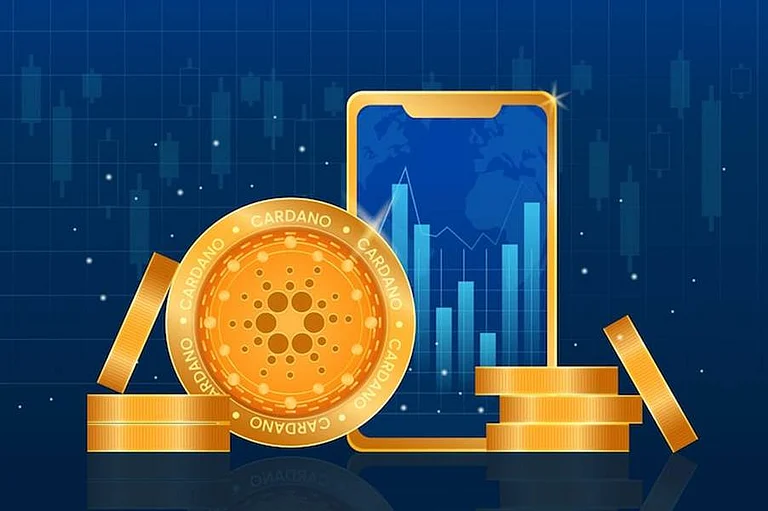Bitcoin mining is perhaps the most contentious and disputed topic in the digital currency industry. Although people are familiar with Bitcoin as some form of decentralized digital currency, not everyone has a clue on how new Bitcoins are minted and how the network is secured. It is this activity, or mining, that forms the foundation of the Bitcoin technology and also a uniting topic in researching the entire field of crypto mining. To understand how relevant it is, let us divide how it works, why it works, and the challenges it currently has.
The Basics of Bitcoin Mining
Bitcoin is a decentralization system where the transactions are validated by members of the system as opposed to an entity like a bank. The validation is done through mining. Mining, in a very basic definition, is solving advanced math problems using computer processing power. When the miners have solved the math problems, they validate and lock in the transactions on the blockchain, the decentralized ledger where all Bitcoin transactions reside.
The reward for such work is double: miners are paid by users in the form of transaction fees, and miners also receive newly mined Bitcoins. The mechanism keeps the network motivated and quenches fresh coins in the system over time until the 21 million threshold of Bitcoins is hit.
How Does Bitcoin Mining Work Technically
Fundamentally, mining is all about computation. ASICs (Application-Specific Integrated Circuits) are custom-built computers to be employed in mining, whose sole function is to execute the hashing functions involved in mining. These machines' functioning is based on proof-of-work, and the miners race against each other to discover a hash value that satisfies some pre-defined difficulty.
A new block of transactions is added to the blockchain every 10 minutes, and the miners race to include this block. The winner of the solution, the first miner, broadcasts to the network, and after other people validate it, the block is confirmed and added permanently. This not only makes the system secure from forgery but also makes it nearly irreversible to modify previous entries.
Why Is Mining Critical for Bitcoin to Survive?
The whole security architecture of Bitcoin relies on mining. If miners did not spend their time and resources securing the blockchain, the network would be exposed to attacks, like the well-known 51% attack where a single individual might command over half the network's mining capacity.
Mining guarantees decentralization, equality, and trust in a government-free and bank-free system. It provides Bitcoin with its own strength: to exist and operate as money without interference from governments. That is why Bitcoin mining can also be regarded as not only a technical process but also one of philosophy, being a revolution in creating and preserving value.
Bitcoin Mining and Its Position in Crypto Mining
Bitcoin is the best-known digital currency, but crypto mining goes far beyond it. Ethereum, Litecoin, and various other cryptos also depend on mining, but possibly on various technology foundations. Ethereum, for example, is transitioning towards proof-of-stake, decreasing the dependency on mining itself, while Bitcoin is still based on proof-of-work.
The expression crypto mining hence encapsulates the overall mood in which digital currencies are mined and disseminated. Learning about Bitcoin mining is an entry point into learning about digital currencies at large. Being aware of Bitcoin gives one an idea about the upside and downside of crypto mining at large.
The Environmental Debate Around Mining
The most severe criticism of Bitcoin mining is probably its effect on the environment. The process consumes huge amounts of energy, most of which is currently generated from fossil fuels. Research has estimated the use of electricity by Bitcoin to be equivalent to that of small nations, fuelling argument as to whether or not it is worth using such resources.
They contend that mining triggers investment in renewable energy and that even the conventional banking system uses gargantuan amounts of energy, typically embedded in operations and infrastructure. They are most concerned about the carbon footprint of mining, especially in nations where coal is a major source of energy.
This rationale has even extended to legislation, where some countries have welcomed miners with open arms as a means of deriving advantage from surplus power and others have outlawed the activity entirely. The fate of Bitcoin mining can thus be made contingent not only on innovation, but on world energy policy.
Economic Impact of Bitcoin Mining
The industry has generated an entire new industry, which generates jobs, innovation, and investment. Mining equipment, energy infrastructure, and blockchain security companies have been established worldwide. Large mines with thousands of computers, called mining farms, have arisen in places where electricity is cheap, including China (in the past), Kazakhstan, and North America.
To humans, mining used to be something anyone could do as a hobby on a computer. Now, it takes a lot of capital and having access to specialized equipment. Although it has made it hard for small miners to penetrate, it also made the industry professional and ensured that the network is secure and competitive.
Challenges and the Future of Bitcoin Mining
Bitcoin mining is confronted with many challenges as it continues to grow. Increased energy prices, increased regulation, and increased competition by miners make it a high-risk, potentially high-reward venture. The four-year halving in which the block reward is reduced by half lowers profitability and compels miners to innovate unbridled.
On the positive side, technological progress, utilization of green energy, and greater global acceptance of electronic money can potentially make mining greener and more profitable in the future. With ever more sophisticated Crypto Mining, Bitcoin mining will likely always be at the center of it, a beacon and working premise of decentralized finance.
Conclusion: Why You Ought to Care About Bitcoin Mining
Bitcoin mining is not only the creation of new money. It is the power source for the world's first decentralized peer-to-peer electronic currency, protecting it with security, trust, and justice independent of central authorities. Through an understanding of mining, an individual develops a sense of the strength of Bitcoin and the value of crypto mining in crafting the money of the future.
While debates over energy consumption, regulation, and profitability rage on, mining will be one of the most significant and intriguing fronts of the digital era. Whether you are a newcomer wondering how Bitcoin works or a savvy reader following the developments in crypto mining, there is one thing certain: without mining, no Bitcoin, and without Bitcoin, crypto life would be quite different.





















